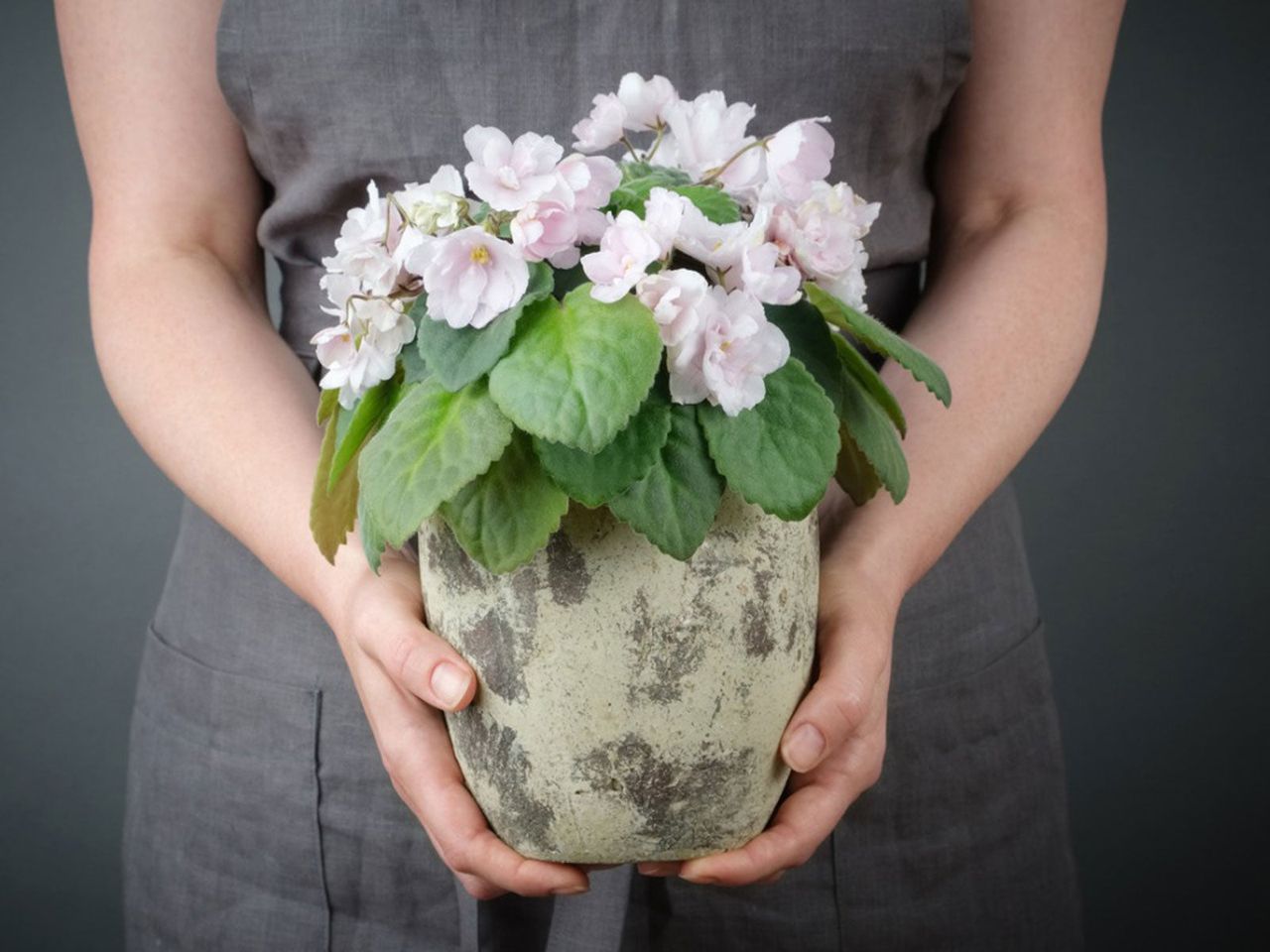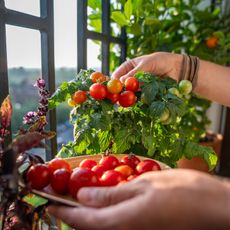Keeping Gesneriad Houseplants: Caring For Indoor Gesneriads

If you are looking for houseplants that thrive and flower in the home, look no further than gesneriad houseplants. The Gesneriaceae plant family is a big one and contains about 150 genera and more than 3,500 species. We are all familiar with indoor gesneriads such as African violets, but did you know that streptocarpus, episcia, gloxinia, lipstick plant, and goldfish plants are also gesneriads? Many of these also make great gifts too.
Growing Indoor Gesneriads
Keeping gesneriads in the home is a delight, especially since this group of houseplants will also flower freely indoors. Many other houseplants will need a lot of direct sunshine in order for flowering to occur, but gesneriads are much more adaptable and will flower well in much lower light.
In general, indoor gesneriad plants do well right in front of windows that have plenty of bright but indirect light. They don’t like too much direct sun, so experiment and see what locations your plants do best in. You can also use sheer curtains to diffuse any windows that have too much direct sun. Gesneriads produce flowers in much lower light levels compared to other flowering plants. Many will even bloom year-round or close to it!
If you don’t have a suitable location in front of a window, gesneriads will thrive under grow lights. You can tell if your plant is receiving too little light if the stems are longer and appear weaker or if flowering is absent. If this is the case, decrease the distance between your light and your plants. If your plant is too close to the light, you may see many of the leaves starting to yellow or even the inner leaves starting to bunch together. Experiment with the space between your grow light and the plants themselves.
Gesneriads in the home do best in the 65 to 80 degrees F. (18-27 C.) temperature range. If you are comfortable, your plants will likely be comfortable too. Gesneriads also like higher humidity but are very tolerant of average indoor conditions. Aiming for 50 percent humidity would be ideal. You can increase humidity by placing your plants on top of a tray filled with wet pebbles. The pots themselves should not be sitting in water.
As far as potting mixes, you can use any commercial soil mixes for African violets and even mix in some additional perlite. A good rule of thumb for watering is to wait until the surface of the soil feels dry to the touch and then water. These plants do not like to go completely dry, and you should avoid this. Always use room temperature water or tepid water and never cold water, as this can spot the leaves and damage the roots.
Regularly fertilize your indoor gesneriads throughout the active growing season for the best growth and flowering. Gesneriad houseplants can’t be beaten for their ease of care and ability to flower profusely with a little attention.
Gardening tips, videos, info and more delivered right to your inbox!
Sign up for the Gardening Know How newsletter today and receive a free copy of our e-book "How to Grow Delicious Tomatoes".
-
 How To Grow Strawberries From A Strawberry: All You Need To Cultivate Yummy Fruits
How To Grow Strawberries From A Strawberry: All You Need To Cultivate Yummy FruitsYou may know how to grow strawberries from small plants or runners – but what about growing from the fruit? Here we show you how to grow strawberries from a strawberry
By Mary Ellen Ellis
-
 Best Tomatoes For Containers: 10 Tastiest Varieties For Plentiful Produce In Compact Areas
Best Tomatoes For Containers: 10 Tastiest Varieties For Plentiful Produce In Compact AreasThese are the best tomatoes for containers that prove you don't need to have a large space or elaborate garden to grow delicious produce.
By Bonnie L. Grant
-
 8 Easy Care Houseplants That Live A Long Time
8 Easy Care Houseplants That Live A Long TimeClick here to learn about our 8 favorite low maintenance houseplants that can, with proper care, live a long time.
By Amy Grant
-
 How Often Should You Repot Plants?
How Often Should You Repot Plants?Escaping roots and shrinking leaves may mean your plant wants a new pot, but some like staying cramped and cozy.
By Mary Ellen Ellis
-
 Orange Flowering Houseplant Varieties With Tropical Flair
Orange Flowering Houseplant Varieties With Tropical FlairClick here to learn about some cheerful orange-blooming houseplants you can try growing.
By Mary Ellen Ellis
-
 Variegated Houseplants With Lovely Leaves
Variegated Houseplants With Lovely LeavesWhat are some of the best variegated houseplants to add to your collection? Click here to find out.
By Amy Grant
-
 Lovely, Lacy Indoor Foliage Plants
Lovely, Lacy Indoor Foliage PlantsClick here to learn about some houseplants with lacy foliage to add to your collection.
By Mary Ellen Ellis
-
 Best Christmas Houseplants And Plants For Winter Holidays
Best Christmas Houseplants And Plants For Winter HolidaysClick here for an idea of the best houseplants to use for holiday décor for Christmas, Hanukkah, Kwanzaa, and New Year’s.
By Laura Miller
-
 Best Big Houseplants To Create An Indoor Oasis
Best Big Houseplants To Create An Indoor OasisIf you have the space you may want to grow some large houseplants. Here are some ideas.
By Mary Ellen Ellis
-
 Relaxing Plants To Grow Indoors For A Calmer Mind
Relaxing Plants To Grow Indoors For A Calmer MindAre there houseplants that can help you to relax? Click here to find out.
By Laura Miller